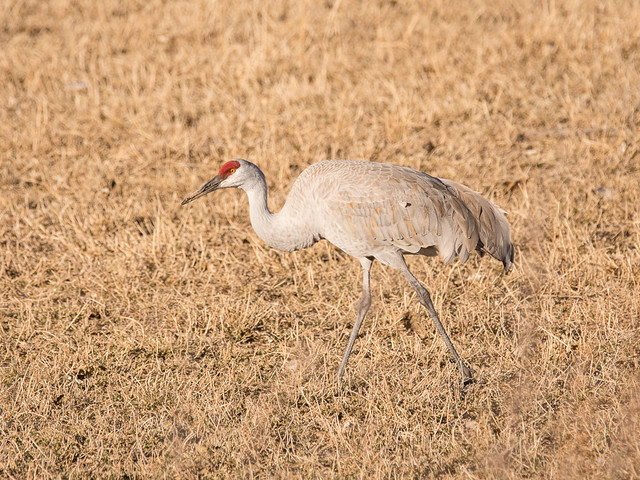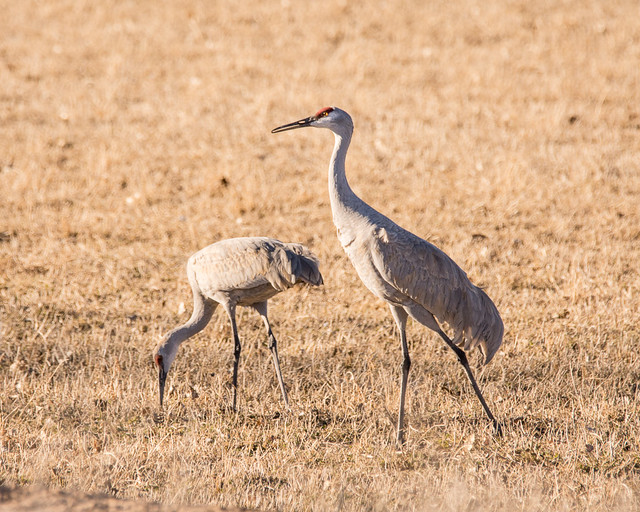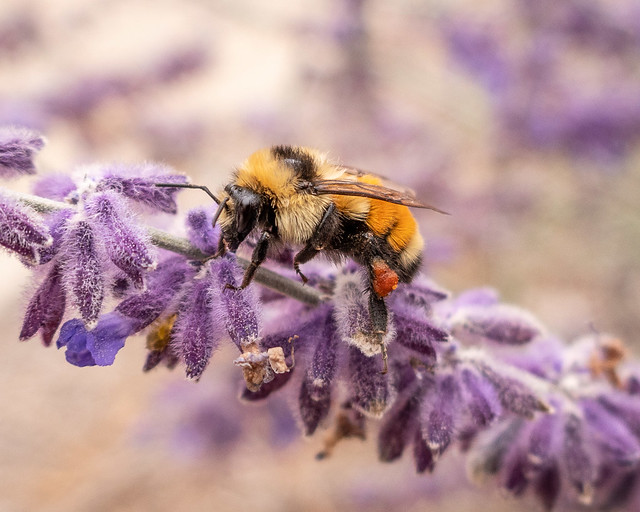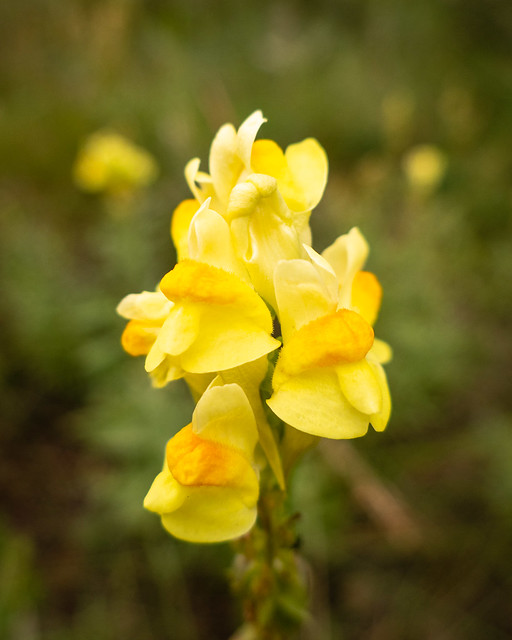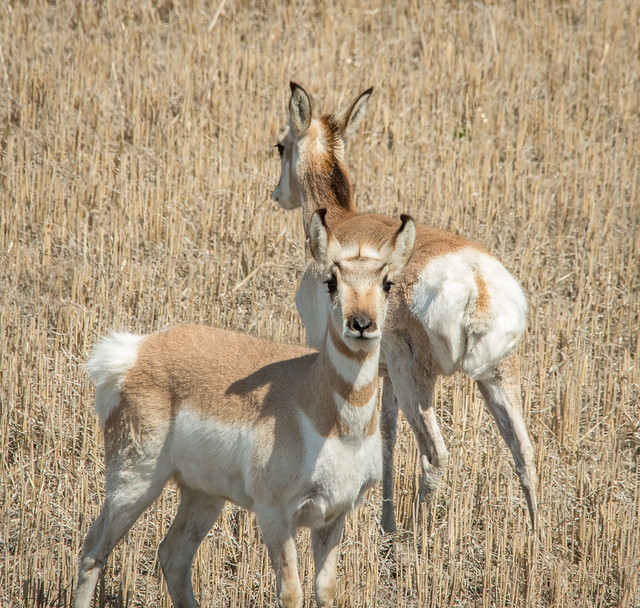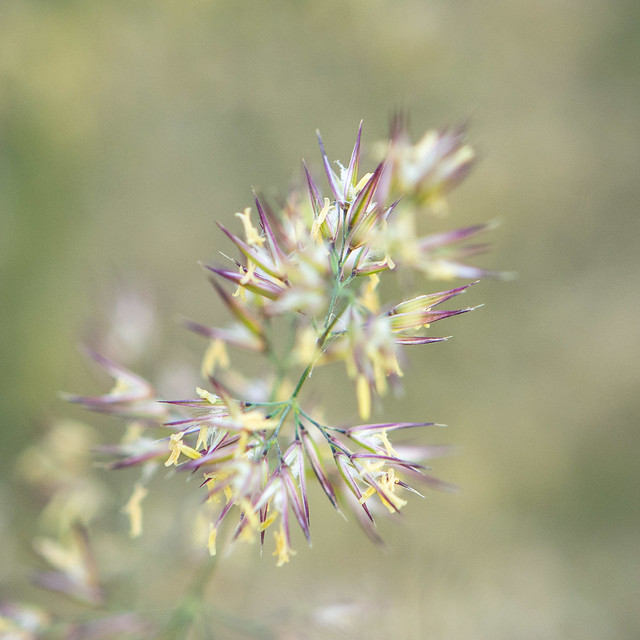Tuesday, 24 September 2019
EcoSask News, September 24, 2019
Upcoming Events
Singing for a Better World, Sept. 24 (Saskatoon)
There will be a choir practice at 7 pm, Sept. 24.
Recycling Workshop, Sept. 25 (Lloydminster)
Find out what can and can’t be recycled at a workshop in Lloydminster from 10-11:30 am, Sept. 25.
Restoring Arctic/Alpine Ecosystems, Sept. 25 (Saskatoon)
Katherine Stewart, U of S, will discuss Letting Nature Lead the Way: Restoring Arctic and Alpine Ecosystems at 7 pm, Sept. 25.
Climate Strike Prince Albert, Sept. 27 (Prince Albert)
Prince Albert will be joining the global climate strike at noon, Sept. 27.
Astronomy Night Open House, Sept. 28 (Saskatoon)
The Royal Astronomical Society of Canada – Saskatoon Centre is hosting an open house from 7:30-11 pm, Sept. 28.
Fall Walk & Picnic, Sept. 29 (Moose Jaw)
Join the Moose Jaw Nature Society for a fall walk and picnic on Sept. 29.
Science in the Park, Sept. 30 (Regina)
Science in the Park will be at Crosbie Park from 6-8 pm, Sept. 30.
Wanted - Research Participants, Sept. 30 (Saskatoon)
Participants are needed for a university research project into attitudes towards options for reduction of GHG emissions. An information meeting will be held from 7-8:30 pm, Sept. 30.
Keep Bees Buzzing, Oct. 1 (Regina)
Find out what to plant in your garden to provide native bees with food and nesting material at 6:30 pm, Oct. 1.
Energy Management Opportunities, Oct. 2 (Saskatoon)
Yi Liu will discuss energy management opportunities and the Federation of Canadian Municipalities at the Oct. 2 breakfast meeting of the SK Energy Management Task Force.
Looking Ahead
Passive House Trades Course, Oct. 22-24 (Saskatoon)
Passive House Canada is offering a 3-day course teaching the skills and knowledge required for the Certified Passive House Tradesperson - Building Envelope Specialization exam from Oct. 22-24 in Saskatoon.
Meewasin 40th Anniversary Gala, Oct. 22 (Saskatoon)
Meewasin Valley Authority is hosting a fundraising 40th anniversary gala at the Radisson Hotel in Saskatoon from 5:30-8:30 pm, Oct. 22.
Rob Dumont Energy Management Awards Dinner, Oct. 23 (Saskatoon)
The 2019 Rob Dumont Energy Management Awards Dinner will be held from 5-9 pm, Oct. 23.
Agricultural Drainage & the Environment, Nov. 6 (Regina)
The Nov. 6 Agricultural Drainage & the Environment conference will cover a wide range of topics including water quality, habitat loss, hydrology, and carbon losses presented by well-known researchers and experts.
Passive House Design & Construction, Nov. 7-10 (Saskatoon)
Passive House Canada is offering a 4-day course in passive house design and construction in Saskatoon from Nov. 7-10.
Saskatoon Nature Society
Golden Eagles
Sept. 26, 8:30 am – Beland Acreage
Oct. 3, 8:30 am – Ponds & Prairie
Oct. 10, 9 am – Whooping Cranes
Retirees and partners who are interested in birds and the natural world are invited to participate.
A full list of upcoming events can be found on the EcoFriendly Sask Calendar
In the News
Friends of the Saskatoon Afforestation Areas Inc. is now incorporated and seeking new members to help protect the Richard St. Barbe Baker and George Genereux Afforestation Areas.
The nitrogen crisis: “It’s fertilizer, not diesel fuel, that’s the largest emissions source on many farms.”
Saskatoon airport receives level one sustainability accreditation. Regina airport received level one accreditation in 2018.
“Before mass electrification of cars and decarbonizing the grid, Americans will need to reckon with two big facts: The population is growing and people are driving more.”
Raincoast Conservation Foundation has published Reform Proposals for Managing Human-Wildlife Conflict in British Columbia, many of which are also relevant in Saskatchewan. “British Columbia should take the lead to proactively prevent the unnecessary killing of wildlife by adopting a more restrained approach to the use of lethal force.”
Fairphone 3 – longer lasting, responsible material sourcing, less waste, easier repairs.
EcoSask News is a weekly round-up of local news and events. Email us if you have items you would like us to include.
You can follow EcoFriendly Sask by liking us on Facebook, following us on Twitter, or by email (top right corner).
Labels:
Advocacy,
Agriculture,
Airport,
Astronomy,
Bees,
Children,
Construction,
Energy,
Lloydminster,
Meewasin,
Moose Jaw,
Prince Albert,
Recycling,
Regina,
Saskatoon,
Technology,
Transportation,
University,
Wetlands,
Wildlife
Sunday, 22 September 2019
Cutting Down on Waste: Saskatchewan Waste Reduction Council
In 2012, Saskatchewan generated 881 kg of waste per capita, way above the national average of 720 kg. All that garbage takes up a lot of space, but it’s worse than that. Plastic waste doesn’t decompose and is accumulating on land and in our oceans, killing birds, turtles, and many other creatures. Toxic chemicals in the waste can poison our land, water, and air and cause serious health problems.
The Saskatchewan Waste Reduction Council (SWRC) has been spearheading initiatives to cut down on waste since 1991. A non-profit organization, their board of directors is comprised of both industry and consumer representatives. Some of their activities, such as the fall workshops, are designed to support the waste recycling and composting industry, while others are aimed at sharing information and promoting waste reduction on a personal level. (They maintain a very useful guide to where and how different items can be recycled.)
Two current initiatives – repair cafés and waste-free events – provide individuals and communities with valuable opportunities to reduce the amount of garbage sent to the landfill.
Province-Wide Repair Cafés
Waste Reduction Week is held annually across Canada with a different theme each day of the week to encourage the adoption of waste-reducing habits. This year’s Waste Reduction Week will be held from October 21-27 and the Council is organizing Repair Cafés on October 26 right across Saskatchewan.
Do you have a broken toaster or a skirt that needs mending? Lots of things can be repaired, but not all of us know how. At a repair café, fixers with the practical knowledge help people repair broken household items. There are now over 1500 repair cafés world-wide. A volunteer group has been hosting a monthly repair café in Prince Albert since the spring of 2018, and the SWRC hosted a repair café in Saskatoon last year during Waste Reduction Week.
This year, the SWRC plans to establish repair cafés in Saskatchewan’s 16 cities during Waste Reduction Week. Working with members and contacts, they are identifying local people who will take responsibility for organizing a café and hopefully keep it going in the future. Locations have been confirmed for almost all cities but many organizers are still needed. (The EcoFriendly Sask Calendar provides links to all the October 26, 2019 Repair Cafés).
SWRC has signed up with Repair Café International and is using their manual to organize the cafés. “It’s a fair bit of work,” explains Joanne Fedyk, SWRC’s Executive Director. “In addition to finding fixers and volunteers, you need to buy supplies – glue, plugs, all the things the manual recommends you have on hand.” Fixers usually show up, although they could have used more sewers in Saskatoon last year, but they also need volunteers to oversee the check-in procedure and serve coffee and snacks while people wait their turn. If you would like to help, contact naomi@swrc.ca.
“We hope the cafés will self-perpetuate,” Joanne says. “We hope people will ask themselves ‘Can it be fixed?’ when something breaks.”
Waste-Free Events
The garbage bins at large community events tend to be full to overflowing. Affinity Credit Union, with SWRC providing technical support, is attempting to address the problem by working with event organizers and concession owners to reduce and recycle waste.
The first waste-free event was the 2018 Food Truck Wars. In 2019, there were four waste-free events: Food Truck Wars, the Saskatoon Marathon, the Children’s Festival, and the Fireworks Festival.
Zero-waste tents were set up in prominent locations with a full range of bins for composting, recycling, and garbage. Volunteers were on hand to help people put their garbage in the right bin. SWRC also worked with vendors to let them know what was and wasn’t allowed. Styrofoam, foil, plastic wrap, plastic straws, and plastic cutlery were all out. Vendors at the Food Truck Wars were allowed to sell plastic water bottles, but the event organizers identified one business on each block that was willing to fill up people’s water bottles. Sandwich boards identified the participating businesses.
Organic waste went to Loraas new composting facility, which has more advanced technology than the City facility. In addition to collecting compostables from event participants, each vendor received a small bin so that they could collect any food waste created behind the scenes.
There have been some valuable takeaways from Saskatoon’s initial waste-free events. First of all, you need a lot of volunteers. Secondly, the zero-waste tents need to be highly visible and participants need to know where to look for them. Thirdly, planning a waste-free event is easier when people buy food on site rather than bringing their own. “You can control what is available for purchase,” Joanne says, “but you have no control over what people bring with them. A lot of parents brought their own lunches to the Children’s Festival.”
The zero-waste events program will continue in 2020 and SWRC hopes it can be expanded to include additional events.
See Also
Repair Café Prince Albert
Event Planning with a Difference (a 2015 article about various groups’ experience with waste-free events)
Tuesday, 17 September 2019
EcoSask News, September 17, 2019
Upcoming Events
National Drive Electric Week, Sept. 14-22 (Davidson, North Battleford, Prince Albert, Saskatoon)
National Drive Electric Week events are happening in Davidson on Sept. 17; North Battleford, Sept. 19; Prince Albert, Sept. 21; and Saskatoon, Sept. 22.
Random Acts of Green, Sept. 17 & 18 (Regina, Saskatoon)
Random Acts of Green, emphasizing solutions to climate change, will be at the University of Regina from 2:30-3:30 pm, Sept. 17, and at the University of Saskatchewan from 11 am-12 pm, Sept. 18. Register and download the app before attending.
Avian Migration, Sept. 18 (Saskatoon)
Stuart Bearhop will discuss Moving Together: Social Decision-Making in Avian Migration at 3:30 pm, Sept. 18, as part of the WildEcol seminar series.
Global Climate Strike for Future, Sept. 20-27 (Regina)
Groups in Regina are holding Global Climate Strikes for Future Sept. 20-27 inclusive and on Dec. 6.
Repair Café, Sept. 21 (Prince Albert)
Celebrate and share maintenance and repair skills from 1-4 pm, Sept. 21, at Repair Café Prince Albert.
World Rivers Day, Sept. 22 (Saskatoon)
Celebrate World Rivers Day at the Saskatoon Farmers’ Market with demonstrations and a river walk from 10 am-5 pm, Sept. 22.
Swap in the Park, Sept. 22 (Saskatoon)
Bring what you want, take what you want at a reduce-reuse-recycle event from 9 am-4 pm, Sept. 22.
Nature Immersion Walk, Sept. 22 (Saskatoon)
Reconnect with nature on a slow, mindful walk from 9:30 am-noon, Sept. 22.
Unearthing our History, Sept. 24 (Saskatoon)
Café Sci YXE is hosting a talk at 7:30 pm, Sept. 24, by Melissa Arcand about understanding our soil and her work with the Kanawayihetaytan Askiy program, training students to work in resource management and land governance.
Wildlife Rehabilitation, Sept. 27 (Moose Jaw)
Jan Shadick, Living Sky Wildlife Rehabilitation, is the guest speaker at the 7 pm, Sept. 27, meeting of the Moose Jaw Nature Society.
Global Climate Strike, Sept. 27 (Saskatoon)
Saskatoon will participate in the Global Climate Strike at noon, Sept. 27.
Festival for Future, Sept. 27 (Regina)
Regina Festival for Future, a performing arts show and displays, will be held from 7-10 pm, Sept. 27.
Science Fam Jam, Sept. 27 (Saskatoon)
Families can enjoy hands-on science activities with author Sally Meadows from 6-7 pm, Sept. 27.
Looking Ahead
Waste Reduction Workshops, Oct./Nov. (Melville, Swift Current, Melfort, Lloydminster)
The Saskatchewan Waste Reduction Council is holding fall workshops in Melville (Oct. 17), Swift Current (Oct. 29), Melfort (Nov. 14), and Lloydminster (Nov. 21).
A full list of upcoming events can be found on the EcoFriendly Sask Calendar
In the News
How do we solve fashion’s waste problem when the industry creates 150 billion pieces of clothing for 7 billion humans each year? Thoughts on creating a circular economy.
“Compostable plastics have been introduced without the right infrastructure or consumer understanding to manage compostable waste.”
Songbirds exposed to pesticides lose weight and migration is delayed. “Migration is a critical period for birds, and timing matters. Any delays can seriously hinder their success in finding mates and nesting, so this may help explain, in part, why migrant and farmland bird species are declining so dramatically worldwide,” said [Christy] Morrissey, University of Saskatchewan.
3 ways insecticides can be counter-productive in agriculture.
“The tadada Scientific Lab is working to re-envision the science classroom” through music, art, and a comic book exam.
EcoSask News is a weekly round-up of local news and events. Email us if you have items you would like us to include.
You can follow EcoFriendly Sask by liking us on Facebook, following us on Twitter, or by email (top right corner).
Labels:
Advocacy,
Agriculture,
Art,
Birds,
Children,
Davidson,
Education,
Fashion,
Lloydminster,
Melfort,
Melville,
Moose Jaw,
Music,
North Battleford,
Regina,
Saskatoon,
Swift Current,
Transportation,
Waste,
Water
Tuesday, 10 September 2019
EcoSask News, September 10, 2019
Upcoming Events
Paris to Pittsburgh, Sept. 10 & 12 (Saskatoon)
Watch a short documentary about the forgotten people affected by climate change at 6:45 pm, Sept. 10 and 12.
Nature Photo Walk, Sept. 11 (Regina)
Join a nature photo walk at Condie Nature Refuge at 5:30 pm, Sept. 11.
Singing for a Better World, Sept. 12 (Saskatoon)
Learn songs about protecting the earth and building peace and justice from 7-9 pm, Sept. 12.
Climate Change, Land & Food, Sept. 13 (Saskatoon)
Margot Hurlbert, Canada Research Chair in Climate Change, Energy and Sustainability Policy, will speak on climate change, land, and food from 10:30 am-12 pm, Sept. 13.
Crows, Jays, Magpies, Sept. 13 (Saskatoon)
Lyndon Penner will talk about crows, jays, and magpies at 7 pm, Sept. 13.
Household Hazardous Waste Day, Sept. 14 (Prince Albert)
Dispose of household hazardous waste in Prince Albert from 9 am-3 pm, Sept. 14.
Saving the Sage Grouse, Sept. 14 (Val Marie)
Help make fencing more wildlife-friendly at the Nature Conservancy’s Wideview property from 10 am-3 pm, Sept. 14.
Nature Immersion Walks, Sept. 14 & 15 (Saskatoon)
Immersed in Nature Photography is hosting nature walks at 9 am, Sept. 14, and 1 pm, Sept. 15.
Moose Jaw River Superheroes, Sept. 15 (Moose Jaw)
Discover insects in and around the Moose Jaw River from 2:30-4 pm, Sept. 15.
Native Plant Garden Anniversary, Sept. 16 (Regina)
Celebrate the 25th anniversary of the native plant garden at 7 pm, Sept. 16.
110 Nature Hot Spots, Sept. 16 (Regina)
Jenn Smith Nelson will present her book, 110 Nature Hots Spots in Manitoba and Saskatchewan, at the 7:30 pm, Sept. 16, meeting of Nature Regina.
YXE Talks Trash, Sept. 16 & 19 (Saskatoon)
The City of Saskatoon is hosting come-and-go workshops to review options for a mandatory recycling and organics program for businesses and organizations on Sept. 16 and Sept. 19.
Science Experiments for Kids, Sept. 17 & 20 (Regina)
Kids ages 7-12 can find out how chemical reactions work from 3:30-5 pm on Sept. 17 at the and Sept. 20.
Swift Fox Recovery in Montana, Sept. 17 (webinar)
Heather Harris, wildlife biologist, will discuss swift fox recovery in Montana at a noon-hour webinar on Sept. 17.
From Coal to Renewables, Sept. 17 (Saskatoon)
Mark Bigland-Pritchard will discuss his research on a reliable, renewables-only provincial electricity grid at 7 pm, Sept. 17.
Adaptation to Climate Change, Sept. 18 (Regina)
Learn about the Prairie Adaptation Research Collaborative at noon, Sept. 18, at Innovation Place Regina.
Seed Saving, Sept. 18 (Saskatoon)
Find out how to save seeds while helping to harvest the Saskatoon Seed Library’s garden from 5:30-8 pm, Sept. 18.
Solar 101, Sept. 19 (Regina)
Learn how solar PV systems work and review Saskatchewan case studies from 6:30-8 pm, Sept. 19.
Farmland Moose Project, Sept. 19 (Saskatoon)
Ryan Brook will discuss the SK Farmland Moose Project at the Sept. 19 meeting of the Saskatoon Nature Society.
A full list of upcoming events can be found on the EcoFriendly Sask Calendar
In the News
“We can’t be approving these kinds of extractive projects that are going to pollute and remove a whole bunch of water from the water cycles.”
“It’s open season on the forest up here and we’re going to absolutely destroy our boreal forest in Northern Saskatchewan if we don’t change.”
A property owner in southwest Saskatchewan is partnering with the Nature Conservancy of Canada to protect sensitive grassland and wetland areas.
Katy Prairie, just outside of Houston, is one of the country’s few remaining tall-grass prairies and a wintering ground for millions of migrating birds. It could be replaced by a highway and urban sprawl.
“Pro-nuclear and anti-nuclear are not considered policy positions. They are identities, ways of signaling membership in a tribe. . . . If you approach nuclear power as a policy question, on the merits, you will find that, like most things, it’s complicated; there are multiple, overlapping issues involved, and the answers cannot be captured in a single binary.”
Discarded fishing line and hooks are killing wildlife.
Memphis area mayor proposes that multi-car owners pay a sustainability fee.
Using new technology, researchers can watch as trees grow, shrink, drink, and breathe.
Vancouver and Lower Mainland are looking for a better way to handle thousands of tonnes of dog poop.
EcoSask News is a weekly round-up of local news and events. Email us if you have items you would like us to include.
You can follow EcoFriendly Sask by liking us on Facebook, following us on Twitter, or by email (top right corner).
Thursday, 5 September 2019
Art-Science Programming for Indigenous Youth
Two university graduate students, Janay Fox and Alexandra Nordstrom, were eager to offer summer programming for students in grades 5-9 at Chief Poundmaker School. Their aim with the Asokan Project was to bridge gaps between arts and science, and Indigenous and western knowledge systems in order to facilitate more productive and sustainable conversations regarding conservation in Saskatchewan. EcoFriendly Sask provided them with a $500 EcoFriendly Action Grant to help them with this initiative. The following is Janay Fox’s account of the event.
We provided 4 days of summer art-science programming for Indigenous youth on Poundmaker and Little Pine First Nations that focused on the intersection between arts, science, and conservation from an Indigenous perspective. We had 15 students attend each day and provided them with arts supplies that they could take home, prizes that encouraged scientific learning, outdoor activities, and healthy food every day. Students were able to learn from professional Indigenous artists, hear from real scientists leading conservation in Saskatchewan, and participate in programming that creates space for the exploration of Cree culture and Indigenous ways of learning – an opportunity that is rarely given in western institutions. We also took students to performances put on by the Storyteller's Performance Festival so that they could engage in the wider artistic and Indigenous community.
Our project also impacted the community by supporting two local Indigenous-owned companies (the caterer and the bus driver) as well as supporting an Indigenous artist (Dana Standinghorn). Leftover food from each day was sent home with students and the rest was donated to the local homeless shelter. Remaining art supplies were donated to Chief Poundmaker School.
We allowed students to engage in productive dialogues about how we can communicate environmental issues through art practice from an Indigenous perspective. We also allowed students to learn about art and science together as opposed to the diametrically opposing way they are taught in western schooling. The project helped foster connections between the local school, art and conservation communities, and the community at large and contributed to important discussions about conservation in our area. We hope that we helped students see that their perspectives have an important place in the scientific community and that they can meaningfully participate in environmental conservation.
The biggest success was the relationship we built with our students. From the beginning we wanted to maintain an environment where there was no hierarchy between instructors and students, working to create a space of openness and support where all people involved could learn from each other. Accordingly, my colleague and I found ourselves learning so much from our students and noticed that they felt comfortable to speak their minds. Additionally, all of the students gave us feedback on what we could change for next time and expressed interest in attending another camp put on by us.
We learned many lessons regarding what kind of activities students like to engage in (especially needing to include more physical activities!), what age groups would be best to break groups into, general logistical things that we did not think of, and also just to relax a little more during the actual camp (The kids have more fun if you're having fun too!). Honestly, there is nothing that immediately comes to mind to change. It was an extremely successful first run and while we had hoped for more students, more than 15 would have likely been unrealistic for us to handle. One thing that we will put in place for future camps will be the incorporation of a land-based learning component and the use of locally employed youth mentors.
Tuesday, 3 September 2019
EcoSask News, September 3, 2019
Upcoming Events
Nature Photography
One way to enjoy and share the beauty of the natural world is through photography. Both the Saskatoon Camera Club and the Regina Photo Club offer a varied program, including field trips.
Public Astronomy Nights, Sept.-Dec. (Regina)
Join members of the Royal Astronomy Society – Regina Centre for public astronomy nights from 8-9:30 pm, Sept. 6 & 27, Oct. 4 & 25, Nov. 22 & 29, and Dec. 6 & 20.
Nature Immersion Walks, Sept. 7 & 8 (Saskatoon)
Immersed in Nature Photography is hosting walks to help you connect with the natural world from 9-11 am, Sept. 7 & 8.
Household Hazardous Waste, Sept. 8 (Saskatoon)
You can dispose of household hazardous waste at City of Saskatoon’s Civic Operations Centre from 9 am – 3:30 pm, Sept. 8.
SK Hummingbirds, Sept. 11 (Regina)
Find out about hummingbird migration patterns from 7-8:30 pm, Sept. 11.
Composting, Sept. 11 (Saskatoon)
Saskatoon Compost Coaches are offering a Composting 101 workshop at The Garden Patch on Sept. 11 from 5:30-7 pm.
Hug a Tree and Survive, Sept. 12 (Prince Albert)
Find out how children can stay safe in the woods at 7 pm, Sept. 12.
Saskatoon Nature Society Field Trips
Golden Eagles
Sept. 5, 8:30 am – Blackstrap Birding
Sept. 19, 9 am – Birding at Donna L. Birkmaier Park
Retirees and partners who are interested in birds and the natural world are invited to participate.
Other Saskatoon Nature Society Field Trips
Sept. 7 – Fall Bird Count
Everyone is welcome. Check the Saskatoon Nature Society’s website for full details and updated information.
A full list of upcoming events can be found on the EcoFriendly Sask Calendar
In the News
Environmental groups are concerned about demolition plans for Saskatoon's SLOWPOKE-2 nuclear reactor.
Advocates in the Prince Albert area say there isn't enough public awareness and hasn't been enough consultation for a 20-year logging plan for the nearby boreal forest.
Town of Canora considers its waste management options.
"With a lack of any detailed environmental assessment prior to determining the freeway's routing, CPAWS-SK is concerned decisions and endorsements are being made without the necessary information."
“As climate change intensifies and fire frequency continues to increase we are likely to see a greater area of boreal forests shifting from carbon sinks to carbon sources and large declines in old growth conifers by the end of the 21st century.”
237,750 people attended The Open, golf’s oldest major championship. For the first time in decades, there were no single-use plastic water bottles.
“For 10,200 miles the monarchs were my guide. They provided the route. They were my teachers. . . . By crossing a continent alongside the monarch butterfly, my migrant teachers taught me how to see.”
British retailers are banning microplastics such as glitter from Christmas cards and wrapping paper.
EcoSask News is a weekly round-up of local news and events. Email us if you have items you would like us to include.
You can follow EcoFriendly Sask by liking us on Facebook, following us on Twitter, or by email (top right corner).
Labels:
Astronomy,
Birds,
Canora,
Children,
Composting,
Forest,
Photography,
Prince Albert,
Regina,
Saskatoon,
Transportation,
Walking,
Waste
Subscribe to:
Posts (Atom)
